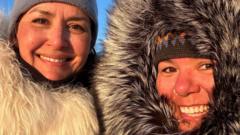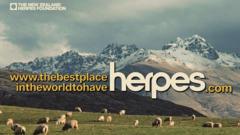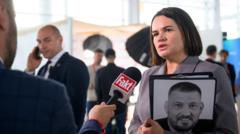In Nunavut, Canada's largest federal district, election campaigns are a blend of cultural respect and logistical hurdles, highlighting the distinct needs of northern communities as they prepare for the upcoming elections.
**Elections in Canada's Arctic: Navigating Unique Challenges and Cultural Nuances**

**Elections in Canada's Arctic: Navigating Unique Challenges and Cultural Nuances**
Exploring the beauty and challenges of campaigning in Nunavut's extreme conditions.
In Canada's frigid north, particularly in Nunavut, elections offer a fascinating glimpse into the unique intersection of culture, geography, and political challenges. The vast territory, encompassing 1.8 million square kilometers yet home to only about 40,000 residents, will select one representative for its distinctive population. Kathy Kettler, the campaign manager for Liberal candidate Kilikvak Kabloona, emphasized the territory's immense size, saying, "Nunavut is at least three times the size of France." The remote nature of the region means that air travel is the primary means of connectivity across its 25 communities.
Kettler, an Inuk from northern Quebec, shared her experiences of campaigning in extreme cold, where temperatures often plummet below freezing for eight months of the year. Knocking on doors in -24C (-11F) weather brought unique obstacles, as the social customs of the North differ from those in southern Canada. Kettler described how it's commonplace for people in northern communities to enter a home without knocking, which can create awkward situations when campaigning.
Language and communication also pose challenges, with many residents speaking Inuktitut. Kettler noted that much of the campaign's budget goes towards translation services for signage and hiring interpreters to reach a broader audience. Election issues reflect the priorities of these communities. While national discussions often revolve around Arctic security, Kettler highlighted that the campaign's focus is largely on food security, noting the high costs of living and pressing needs for clean water.
Jean-Claude Nguyen, responsible for overseeing elections in Nunavut, described the logistical complexities of ensuring that ballots reach every corner of the vast territory, including remote locations like gold mines. He recounted humorous anecdotes, including a ballot box that was damaged by wildlife—a clear reminder of the region's unique environment.
Despite the numerous challenges, Kettler expressed admiration for the Northern spirit, stating, "The generosity, love, and care that people have for each other in every community shines through." This warmth and resilience, she believes, are what make campaigning in Nunavut a deeply meaningful experience. As Nunavut gears up for the elections, candidates and their teams continue to navigate the complexities of their unique environment, determined to engage their communities in the democratic process.
Kettler, an Inuk from northern Quebec, shared her experiences of campaigning in extreme cold, where temperatures often plummet below freezing for eight months of the year. Knocking on doors in -24C (-11F) weather brought unique obstacles, as the social customs of the North differ from those in southern Canada. Kettler described how it's commonplace for people in northern communities to enter a home without knocking, which can create awkward situations when campaigning.
Language and communication also pose challenges, with many residents speaking Inuktitut. Kettler noted that much of the campaign's budget goes towards translation services for signage and hiring interpreters to reach a broader audience. Election issues reflect the priorities of these communities. While national discussions often revolve around Arctic security, Kettler highlighted that the campaign's focus is largely on food security, noting the high costs of living and pressing needs for clean water.
Jean-Claude Nguyen, responsible for overseeing elections in Nunavut, described the logistical complexities of ensuring that ballots reach every corner of the vast territory, including remote locations like gold mines. He recounted humorous anecdotes, including a ballot box that was damaged by wildlife—a clear reminder of the region's unique environment.
Despite the numerous challenges, Kettler expressed admiration for the Northern spirit, stating, "The generosity, love, and care that people have for each other in every community shines through." This warmth and resilience, she believes, are what make campaigning in Nunavut a deeply meaningful experience. As Nunavut gears up for the elections, candidates and their teams continue to navigate the complexities of their unique environment, determined to engage their communities in the democratic process.





















